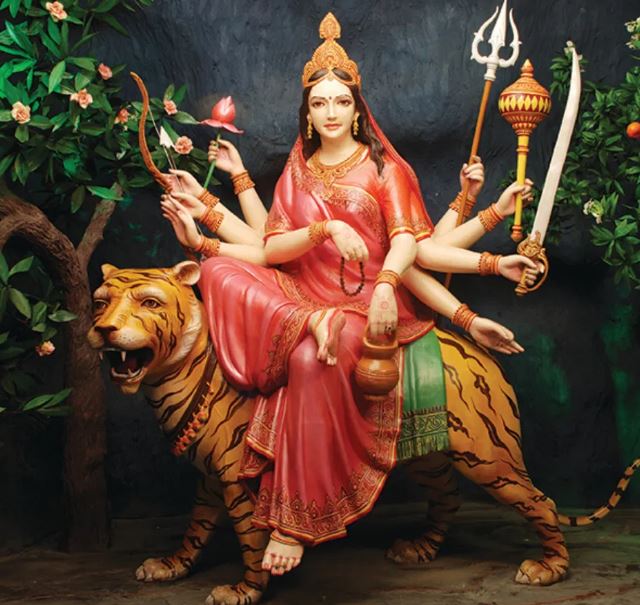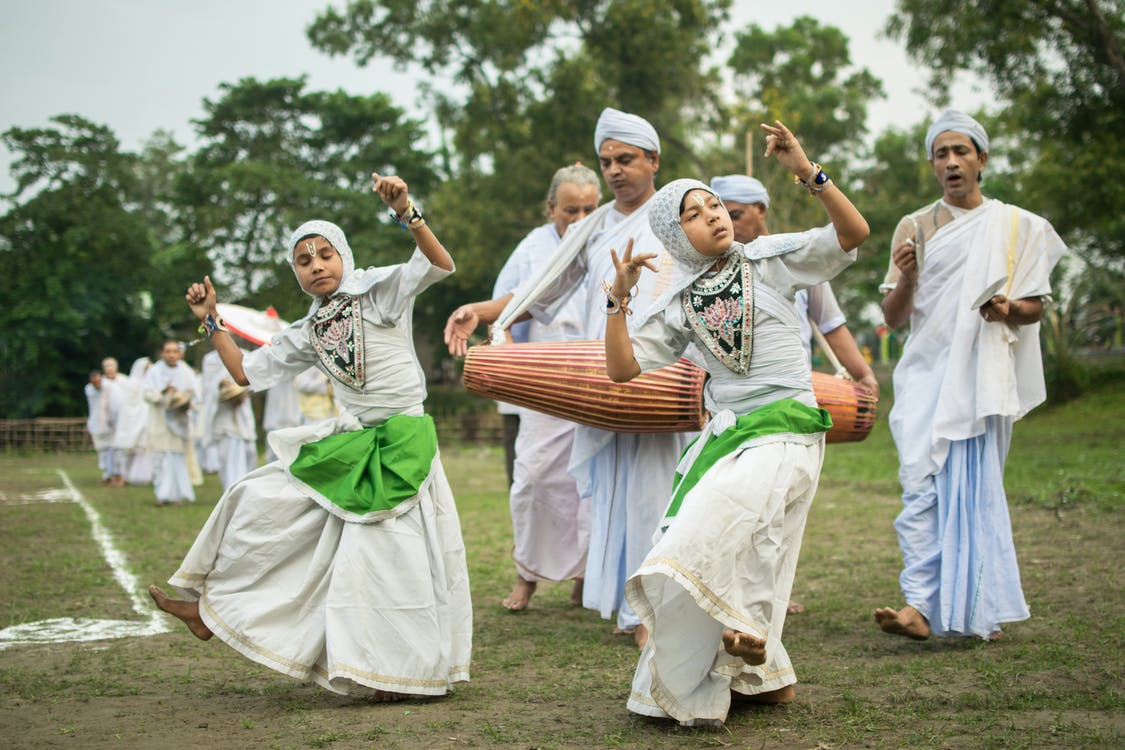
The third day of Navratri is dedicated to Goddess Chandraghanta. This form of Goddess Durga is depicted with a half-moon (Chandra) shaped like a bell (Ghanta) on her forehead, giving her the name Chandraghanta. She is considered the symbol of peace and serenity.
Here are some common rituals and practices observed on the third day of Navratri:
- Prayer and Pooja: Devotees offer prayers to Goddess Chandraghanta and perform special Pooja to seek her blessings. The Pooja involves the recitation of mantras, offering of flowers, milk, and sweets, and the lighting of incense.
- Fasting: Many people observe a fast on the third day of Navratri as a way of purifying the mind and body. Fasting is believed to invoke the energy of Goddess Chandraghanta and is done from sunrise to sunset.
- Chanting of Mantras: Devotees chant specific mantras dedicated to Goddess Chandraghanta. The chanting of mantras is considered a powerful way to connect with the divine energy and seek blessings.
- Worship of Kalash: The Kalash, a pot filled with water, is often used in Navratri rituals. Devotees perform the Kalash Sthapana and invoke the divine energy of Goddess Chandraghanta.
- Offering of Bells: Since the name Chandraghanta is associated with the sound of a bell, offering small bells to the Goddess is considered auspicious. Devotees often tie bells to the ends of their dupattas or chunnis as a symbol of devotion.
- Dress in Yellow: Yellow is the color associated with the third day of Navratri. Devotees often dress in yellow-colored clothes as a way of representing the auspiciousness and vibrancy associated with this day.
- Cultural Programs: Similar to the previous days, cultural programs and events, including traditional dance forms like Garba and Dandiya Raas, may be organized to celebrate Navratri.
Remember that specific traditions and customs may vary, and it’s advisable to follow the practices observed in your community or family.



